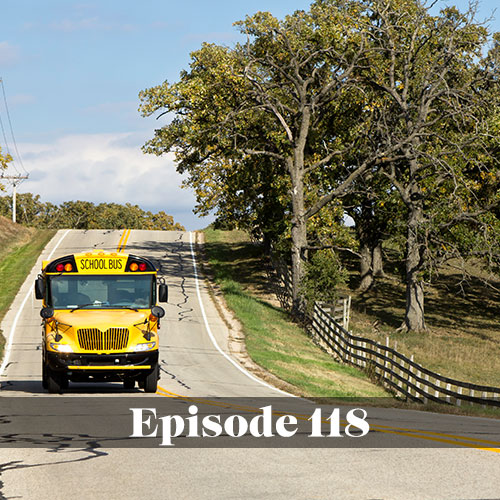In this episode, host Carole Dorn-Bell speaks with Rick Smith about the future of career centers. The two discuss ways in which career and technical programs are being re-examined and re-imagined for the modern workforce. Rick is the Superintendent of Ohio Hi-Point Career Center and the Career and Technical Center Representative for the Ohio Small and Rural Collaborative.
Ohio has a robust system because each school district is assigned to a career and technical education center. Rick says even rural and small schools are benefiting from the organizations, thanks in part to satellite educations being offered in the state.
Asked to share new developments in the area, Rick points to new applications for STEM knowledge, such as autonomous vehicle engineering.
Rick notes that when it comes to the future of career centers, every field is becoming technology-driven. For example, HVAC/electric educations now involve programming because of the ubiquity of Amazon Alexa and Google Home devices. And new jobs are continually available.
“Manufacturing jobs, for example, people thought were going to totally be leaving America, and they’re coming back,” Rick says.
There is a workforce gap—expected to grow to 4 million unfilled jobs nationally— that can be shored up through career and tech centers. That means the perception of these services is changing and that kids who are strong students and perhaps college bound are now exploring the possibilities. The future of career centers is bright.
“The idea that the career center student was the one that could not make it in their traditional school so we just sent them to the career center—I think we’re changing that paradigm,” Rick says. “You’re definitely looking at a different type of student coming into these engineering classes.”
Rick cites the example of an Ohio plumbers’ association with an average age over 50, in need of younger workers. They should be able to get plenty of young workers interested because these sorts of technical trades are all high-paying, quality, dependable jobs. Rick says the recession had people look away from such careers.
“And we need to be trying to fill those fields again,” he says.
School counselors, parents and youth pastors should talk to students about all their options, including a career and technical education. What’s important to each particular student: finding work right away? Graduating debt free? The right answer is not the same for everyone.
Rick suggests students should consider job shadowing someone in the community to see what a particular career is like. They also should consider career inventory websites, visit local career centers and take personality trait quizzes.
Tunnel vision is a common mistake. Students should not feel beholden to a single career because that’s what they’ve chosen to study. It’s more of an educational foundation. Learning medical terminology, for example, is important to go into medical insurance or to be a medical receptionist. People will change careers many times in a lifetime.
“Use this time in high school to explore those career options,” Rick says. “And you might find out by doing some of them you don’t want to do it. And that’s just as well as knowing what you do want to do.”
Got a question or topic you’d like covered in an upcoming We Love Schools podcast? Email us at info@weloveschoolspodcast.com
First time listening to We Love Schools? Learn more about our weekly podcast.
Interested in learning more about how the Allerton Hill Communications team can help your school with communications? Contact us today.






